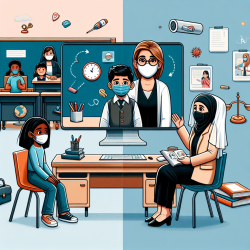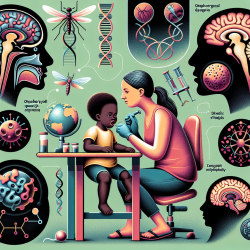In a world where creativity is both celebrated and undervalued, arts graduates find themselves at a crossroads. A recent study published in the Journal of Cultural Economics sheds light on the profound impact student loan debt has on the career choices of college graduates with majors in the arts. This research reveals a staggering 25% decrease in the likelihood of arts graduates working in jobs related to their major fields due to student debt. But what does this mean for practitioners and educators in the field? Let’s delve into the findings and explore how they can be applied to improve practice and encourage further research.
The Financial Dilemma for Arts Graduates
The study highlights a critical issue: arts graduates are more likely than their peers from other fields to have borrowed student loans and still owe money. This financial burden significantly influences their career paths. Unlike graduates from other disciplines, who may see only a 3% decrease in working in related fields due to debt, arts graduates face a much harsher reality.
For those passionate about pursuing careers in the arts, this presents a dilemma. The intrinsic motivation to create is often overshadowed by the need for financial stability. As educators and practitioners, understanding this dynamic is crucial. It calls for a reevaluation of how we prepare students for life after graduation and support them through these challenges.
Implications for Practitioners
Practitioners in online therapy services, like those at TinyEYE, can draw valuable insights from this research. Here are some ways to apply these findings:
- Financial Literacy Education: Incorporate financial literacy into your curriculum or therapy sessions. Helping students understand loan management and financial planning can empower them to make informed decisions.
- Diverse Career Pathways: Encourage exploration of diverse career pathways that utilize creative skills beyond traditional arts roles. Highlight opportunities in education, entrepreneurship, and innovation where arts skills are valuable.
- Advocacy for Policy Change: Advocate for policies that alleviate student debt burdens, such as tuition caps or expanded financial aid specifically for arts programs.
Encouraging Further Research
This study opens doors for further research into the intersection of student loan debt and career choices among arts graduates. Future studies could explore:
- The long-term impact of debt relief policies on career trajectories in the arts.
- The role of mental health support in managing financial stress among arts students.
- The effectiveness of entrepreneurship education programs in preparing arts students for diverse careers.
By continuing to investigate these areas, we can develop more comprehensive strategies to support arts graduates in achieving their career goals despite financial hurdles.
A Call to Action
The findings from this study serve as a call to action for educators, policymakers, and practitioners alike. By addressing the financial challenges faced by arts graduates, we can help ensure that creative talents are not lost due to economic constraints. It’s time to rethink how we support our future artists and innovators.
To read the original research paper, please follow this link: Student loan debt and the career choices of college graduates with majors in the arts.










